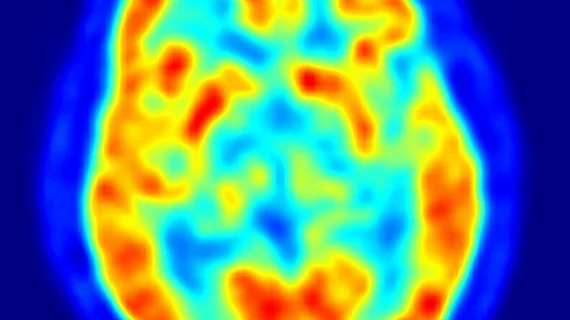PET-trained AI predicts Alzheimer’s 6 years before diagnosis
A new artificial intelligence (AI) algorithm trained on 18-F-fluorodeoxyglucose positron emission tomography (18FDG-PET) scans can predict the occurrence of Alzheimer’s disease at least six years before diagnosis with 100 percent sensitivity, according to research published Nov. 6 in Radiology.
Early diagnosis of Alzheimer’s disease is a game changer, as it allows for earlier treatment and patient monitoring. However, the disease’s tendency to increase glucose levels in certain areas of the brain—resulting in metabolic changes—are subtle, diffuse and can be difficult to identify with standard imaging.
“If we diagnose Alzheimer’s disease when all the symptoms have manifested, the brain volume loss is so significant that it’s too late to intervene,” study co-author Jae Ho Sohn, MD, from the Radiology & Biomedical Imaging Department at the University of California in San Francisco (UCSF), said in a prepared statement. “If we can detect it earlier, that’s an opportunity for investigators to potentially find better ways to slow down or even halt the disease process.”
Led by Benjamin Franc, MD, a professor of clinical radiology at UCSF, researchers trained a deep learning algorithm on more than 2,100 FDG-PET brain scans from the Alzheimer’s Disease Neuroimaging Initiative (ADNI). The algorithm was trained on 90 percent of the dataset to learn how to identify metabolic patterns that corresponded to Alzheimer’s. The remaining 10 percent of the dataset was used to test the algorithm for accuracy.
For additional accuracy assurance, the researchers tested the algorithm on a set of 40 imaging exams from 40 patients independent from the study cohort.
Overall, the algorithm achieved 100 percent sensitivity at detecting the disease at an average of more than six years prior to the final diagnosis, according to the researchers. Additional testing with a larger study cohort is needed, the researchers explained, however the algorithm could be used to compliment the work of radiologists in allowing for earlier therapy and care.

